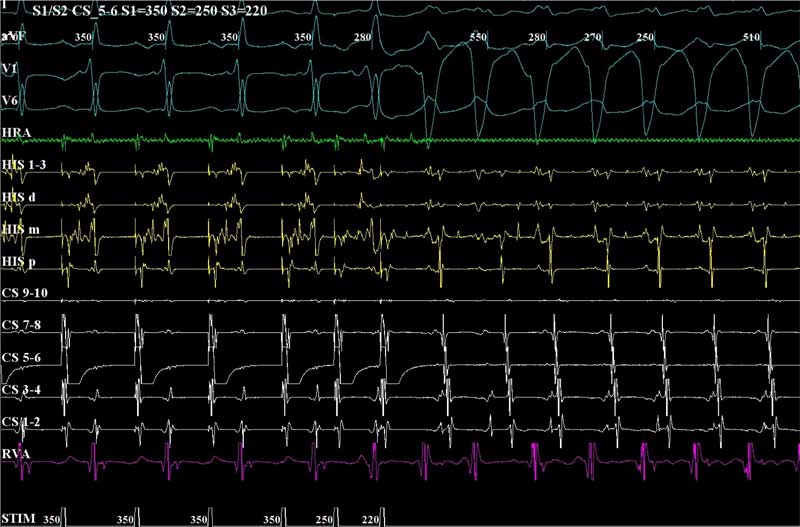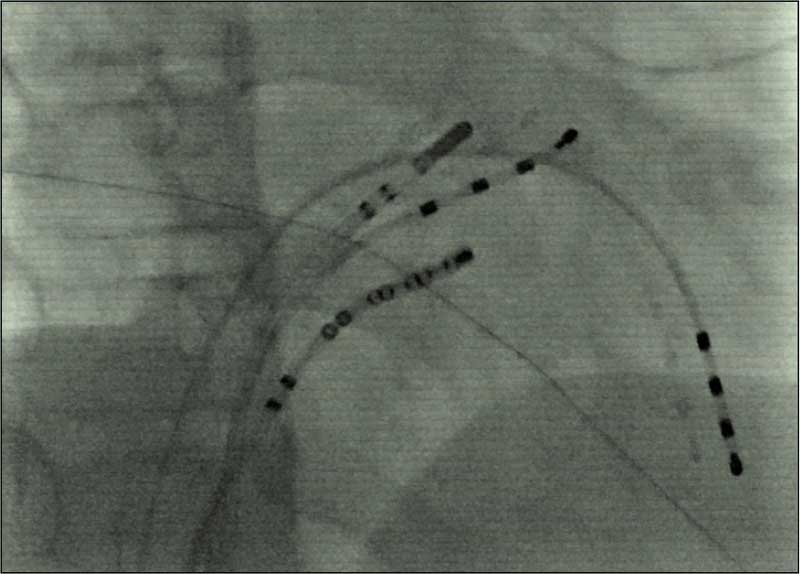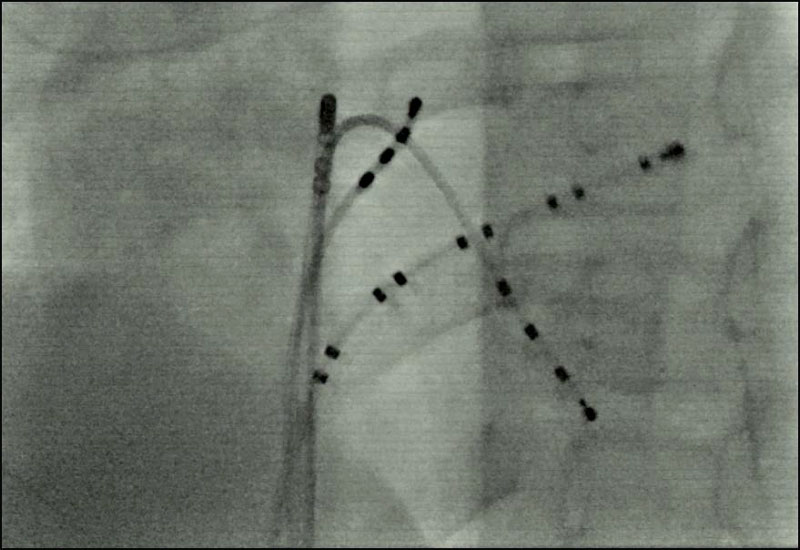Electrophysiology (EP) Study
An EP study is a minimally-invasive procedure performed with sedation or anesthesia that allows the cardiologist to evaluate the heart’s electrical system in detail, including trying to provoke abnormal heart rhythms. These procedures are done in the EP lab, a part of the hospital that has X-ray video cameras and special computer systems for measuring the heart rhythm and making 3D maps of how electricity spreads inside the heart. In school-aged children, this usually involves inserting long flexible wires (catheters) from the veins in the leg up into the heart to measure the electricity from the inside. In some cases, a simpler kind of EP study can be done by passing a catheter down the esophagus (the tube from mouth to stomach) until it sits just behind the heart. After an EP study, patients wake up from anesthesia and usually go home the same day.
For patients with fast heart rhythms, an EP study can sometimes be combined with Catheter Ablation to cure the problem.


